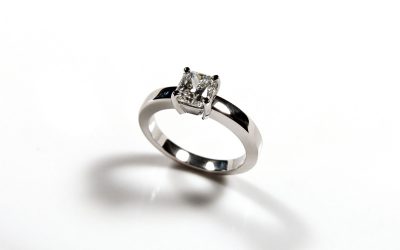If you’re like many, the act of buying diamonds and jewelry can be a daunting task. Research can be hard to do, especially if you go through a variety of websites. Researching online can produce a great deal of conflicting and confusing information, and you can’t actually see the diamonds while researching on line. The info on each site is geared toward selling you their products, which can make it tough to choose the best studs for your ears, or for those of your spouse or girlfriend. GIA certified diamonds have been graded by a laboratory based on the 4C attributes, including clarity, color, cut, and carat (weight). It is best to purchase diamonds with certificates to ensure that the stones are of the highest quality.
Learn More About Certification
Certification means that the diamond studs you chose are verified for their quality. You can purchase with confidence because you know it is an excellent investment. You won’t have to go on the sales pitch from the retailer alone and will have something to fall back on when you wonder if your stone is authentic.
Likewise, certified diamond studs can hold their value better than those that don’t have certification. You may also find it easier to compare those that have certification because everything is already laid out for you.
What Else You Should Know
If you choose to purchase certified diamond jewelry, it’s best to purchase stones with GIA certification. GIA is the definitive authority in the US and they grade fairly and consistently. There are several other gem labs operating but certificates from those labs are inconsistent and unreliable and do not add value to the diamonds like GIA certification does.
Certificate Vs. Appraisal
Sometimes, a retailer will try passing off the appraisal as independent certification. Do not be fooled by this. These documents can both be helpful and necessary but they are distinctly different from each other. The GIA certificate describes the qualities of the diamond but does not assign it a dollar value. The appraisal assigns a monetary value for your insurance company to protect you in the event of loss.



